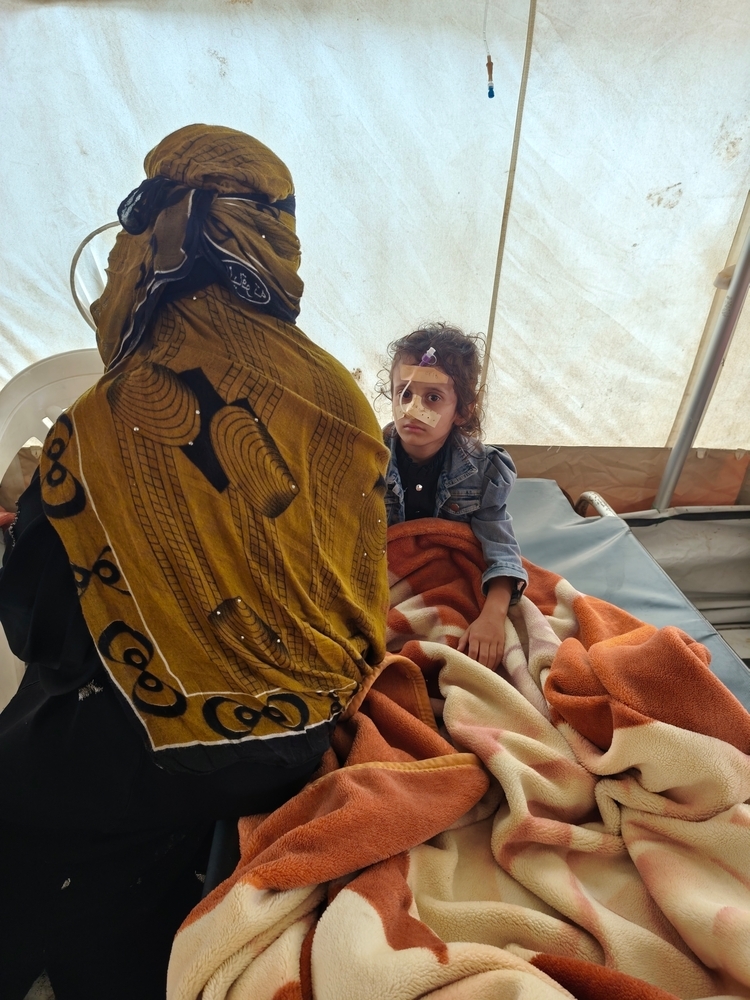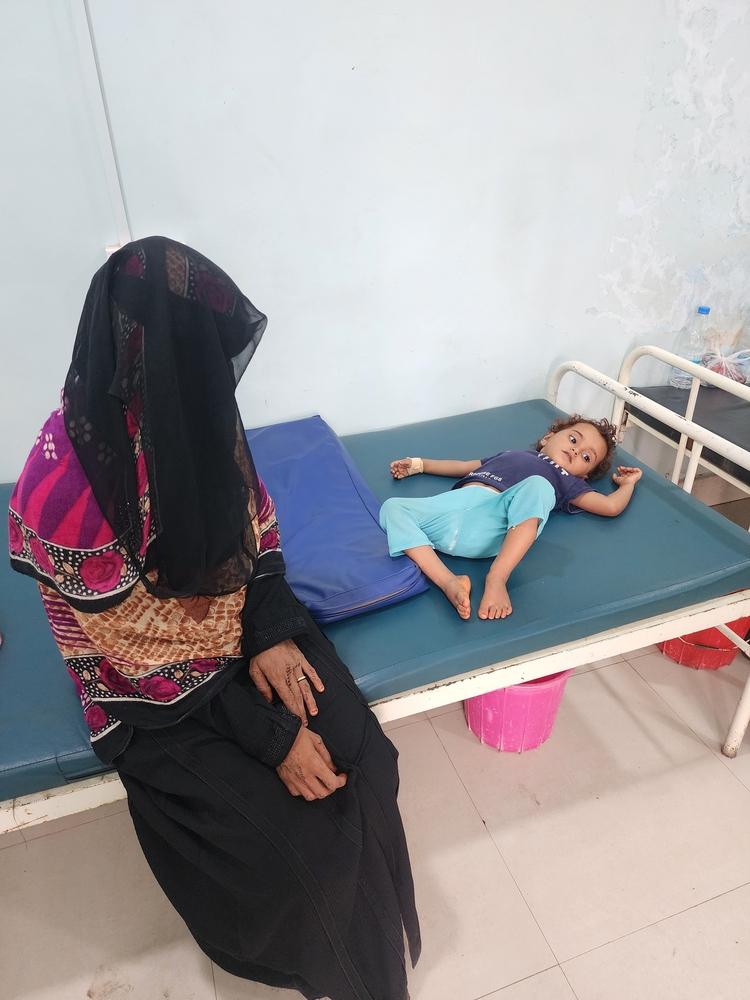As Yemen continues to endure one of the world’s longest-running humanitarian crises, the recent spike in acute watery diarrhoea cases in Ibb and Al-Hodeidah governorates has once again highlighted the fragility of the country’s healthcare system. There is an urgent need for sustained humanitarian support, so that people most affected by the outbreak can access care in a timely manner. Behind the rising numbers are stories of loss, and survival – families struggling to save their loved ones under difficult conditions.
Rawdah, a mother from Taiz governorate, knows the pain of loss all too well. She lost three of her children to illness, and when her youngest daughter, Malak, suddenly started suffering from acute watery diarrhoea, she was overwhelmed with fear. With her husband away in another city, searching for work, Rawdah faced the crisis alone.

Driven by a strong will to save her daughter, she took the courageous decision to travel across governorate lines to Ibb, remembering that Médecins Sans Frontières (MSF) had previously treated one of her children successfully. When she arrived at the diarrhoea treatment centre in Al-Qaeda city, where an MSF team works, Malak was immediately received and treated by the medical staff.
“I was very sad and didn’t eat for two days,” Rawdah recalls. “I felt I was about to lose my mind and lose my child. I was overwhelmed, but when we arrived and the doctors began treating her, I started to see improvement. I felt relieved.”
Today, Malak is recovering well. Her story is a testament to the life-saving impact of timely access to medical care and a reminder of the challenges many in Yemen face in reaching it.
In Al-Qaeda city, MSF operates one of the only two diarrhoea treatment centres in Ibb governorate, serving as a critical lifeline for patients with acute watery diarrhoea. From April to end of August 2025, the centre treated over 4,705 patients, of whom 81 per cent suffered from moderate to severe dehydration. With the onset of the rainy season in mid-July came a sharp increase in cases, prompting MSF to expand bed capacity at the centre from 50 to 100. We had an average occupancy rate of 80 to 90 beds daily.

To enhance early treatment and reduce the risk of complications, MSF also established oral rehydration points in three health centres in three different districts of Ibb governorate, allowing patients with mild symptoms to begin treatment closer to their homes, and easing pressure on the central treatment centre.
In Al-Hodeidah governorate, MSF supports Al-Zaydiyah Rural hospital, which now includes a 30-bed diarrhoea treatment centre. MSF also supports two oral rehydration points in the districts of Az-Zaidiyah and Ad-Dahi. From April to end of August 2025, the hospital treated over 990 people with acute watery diarrhoea, reflecting the growing burden on local health services and the importance of decentralised care.
Ali’s experience with acute watery diarrhoea reveals another harsh reality: the financial barriers that prevent many Yemenis from accessing healthcare. He was bedridden for three days, growing weaker by the hour, and wanted to seek help but lacked the money for transportation.
“I didn’t have money for transport,” Ali shares. “I could only afford a motorbike ride after three days of being bedridden with acute watery diarrhoea.”
When he finally reached the treatment centre in Al-Qaeda city, Ali was promptly treated and began his recovery.
Access to healthcare is vital, but water, sanitation, and hygiene services are equally critical to curb the outbreak. MSF calls for an urgent scale-up of these services in affected areas to prevent further spread.
Yemen’s health system remains critically overstretched and underfunded after more than a decade of conflict, instability, and funding cuts. Despite the scale of people’s needs, global attention and funding continues to decline.
The stories of Rawdah, Malak, and Ali are not isolated – they reflect the daily struggles of Yemenis who face immense barriers to accessing essential healthcare.
As acute watery diarrhoea cases rise, and the rainy season accelerates its transmission, urgent action is needed. Humanitarian actors and donors must prioritise Yemen, increase funding, and invest in sustainable solutions to strengthen the country’s health infrastructure.
MSF is actively responding to the acute watery diarrhoea surge across 6 governorates in Yemen, providing critical medical care and support to the affected communities.












